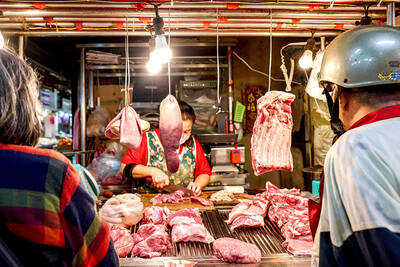It’s a tiny misprint, but an Australian publisher has had to pulp a cookbook after one recipe called for “salt and freshly ground black people” to be added to the dish.
Penguin Group Australia pulped and reprinted about 7,000 copies of Pasta Bible after the typographical error was found in the ingredients for spelt tagliatelle with sardines and prosciutto, the Sydney Morning Herald reported.
“We’re mortified that this has become an issue of any kind, and why anyone would be offended, we don’t know,” head of publishing Bob Sessions was quoted as saying.
Penguin said almost every one of the more than 150 recipes in the book called for salt and freshly ground black pepper but a misprint occurred on just one page, probably as a result of a computer’s spellchecker program.
But Sessions says he won’t be making an example of the guilty party. “When it comes to the proofreader, of course they should have picked it up, but proofreading a cookbook is an extremely difficult task. I find that quite forgivable,” he said.
He said it would be extremely hard to recall the stock but if anyone complained about the “silly mistake” they would be given the new version.
(AFP)
澳洲一家出版商誤把食譜中某道菜的調味料印成「鹽和現磨黑人」,為此書商銷毀書籍補救。
《雪梨先鋒晨報》報導,澳洲企鵝出版社發現出版的《麵食寶典》中,「沙丁魚及火腿義大利麵」這道菜的調味料印刷有誤後,即展開銷毀,並重印了七千本。
該報引述出版社老闆鮑伯•塞遜的話說:「這件事引發關注,我們感到不好意思,再者為什麼有人會被冒犯,我們不懂。」
企鵝出版社方面表示,《麵食寶典》中匯集了一百五十多道美食食譜,幾乎所有菜色都用到鹽和現磨黑胡椒這兩樣調味料,但出錯的只有一頁,很可能是電腦拼字校對程式遺漏所致。
然而塞遜表示,他不會懲處失職人員來殺雞儆猴。他說:「身為校對者是該抓出錯誤,不過校對食譜是很吃力的工作,他們情有可原。」
他表示,已賣出的食譜回收極為不易,出版社方面決定不回收,但如果有讀者抱怨這「可笑的錯誤」,公司會提供新版食譜換取。
(法新社╱翻譯:林倩如)

Pigs that are resistant to a deadly viral disease have been created by scientists at Edinburgh’s Roslin Institute. The gene-edited animals remained healthy when exposed to classical swine fever (CSF), a highly contagious and often fatal disease. The virus was eradicated in the UK in 1966, but there have been several outbreaks since and it continues to pose a major threat to pig farming worldwide. “Classical swine fever is a devastating disease for livestock and farmers as we saw with the outbreak in the UK, 25 years ago,” said Helen Crooke, mammalian virology deputy leader at the Animal and Plant Health Agency

Have you ever seen a circular intersection where cars continuously flow in one direction around a central island? That is a “roundabout,” a well-known alternative to traditional intersections. Drivers enter and exit at different points without relying on traffic lights. Their primary purpose is to improve traffic flow and minimize the likelihood of high-speed collisions, particularly dangerous T-bone and head-on crashes. Roundabouts have existed and been implemented for over a century. In the 1960s, the modern roundabout emerged in the UK, with added rules for yielding. Unlike intersections with red lights, roundabouts allow vehicles to continue moving at a

A: So you’re reading Jin Yong’s martial arts novel again? B: Yup, Jin’s novels are so fascinating, especially the trilogy: “Legends of the Condor Heroes,” “Return of the Condor Heroes,” and “Heaven Sword and Dragon Saber.” A: The late novelist published his first story in 1955, which means this year marks the 70th anniversary of his “wuxia” world. B: Wasn’t an English version of “Legends of the Condor Heroes” also released in 2018? A: Yes, but the debate over the translation of kung fu moves continues — like the evil move “Nine Yin Skeleton Claw.” A: 你又在重讀金庸的武俠小說啦? B:

對話 Dialogue 清清:明天我想請一天假。 Qīngqing: Míngtiān wǒ xiǎng qǐng yì tiān jià. 華華:為什麼?這個月的假已經很多了,你還要請假啊? Huáhua: Wèishénme? Zhège yuè de jià yǐjīng hěn duō le, nǐ háiyào qǐngjià a? 清清:因為明天是農曆九月初九重陽節,重陽節是老人節,我想陪我阿公阿嬤去爬山,而且家裡也要拜祖先,請假比較方便。 Qīngqing: Yīnwèi míngtiān shì nónglì jiǔ yuè chū jiǔ Chóngyáng Jié, Chóngyáng Jié shì Lǎorén Jié, wǒ xiǎng péi wǒ āgōng āma qù páshān, érqiě jiālǐ yě yào bài zǔxiān, qǐng jià bǐjiào fāngbiàn. 華華:了解,是應該陪老人出去走走。阿公阿嬤應該會拿到政府發的紅包吧? Huáhua: Liǎojiě, shì yīnggāi péi lǎorén chūqù zǒuzǒu. Āgōng āma yīnggāi huì nádào zhèngfǔ fā de hóngbāo ba? 清清:有啊!65歲以上的長輩都會領到敬老金,只是每個縣市給的數字不太一樣,年紀越大,拿到的會越多喔! Qīngqing: Yǒu a! Liùshíwǔ suì yǐshàng de zhǎngbèi dōu huì lǐngdào jìnglǎojīn, zhǐshì měi gè xiànshì gěi de shùzì bútài yíyàng, érqiě niánjì yuè dà, ná dào de huì